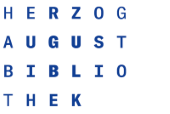In December 2003, the Jahrbuch für Computerphilologie convened a conference on “The Future of Humanities Computing”, in which I gave a talk meditating on ten years of the making of what we now call “digital editions”. This talk was later published as an article in the Jahrbuch. Patrick Sahle used this article as one of the starting points for his own meditations on digital editing, leading to the making of his indispensable on-line catalogue. It seems apposite that another conference in Germany, twenty years later, might permit a review and updating of what I said in 2003. In 2003, I complained that “almost without exception, no scholarly electronic edition has presented material which could not have been presented in book form”, and I linked that to the failure of most “electronic” editions to offer any tools more advanced than basic searches, and often not even that. Are these criticisms still valid? The talk also comments on the state of software and other tools, arguing that these were arriving: have they arrived? Finally, the article looks forward to editions which are “dynamic”, in the sense that they are continually reshaped as new materials, new perspectives, new commentaries arrive, in a continuing collaboration among many scholars and readers everywhere: what the article describes as “fluid, co-operative and distributed editions.” Are such editions our aim? could that aim be achieved? what progress have we made?
In some respects, we are much better off. There have been twenty years of vigorous debate about digital editions: their relations with print editions, how they should be made, who should make them, how they should relate to each other and ferment of change through the digital turn. As well as Sahle, there have been consequential discussions by Schmidt, Pierazzo, Bordalejo, Gabler, Eggert, Shillingsburg, McGann, Van Zundert, and many others. There have been hundreds of digital scholarly editions made, as listed in the catalogues of Sahle and Franzini. Yet, over the same period, many more scholarly editions have been published in print form than in digital form. One can see this in the catalogues of some university presses, notably Oxford and Cambridge. Perhaps ironically, digital methods are heavily used in the making of print editions: witness the editions made with Stefan Hagel’s Classical Text Editor, or with the TU-STEP system. Further, most (at least) of the digital editions published since 2003 do not pass the test offered in my 2003 article: they present text, images and commentary in the same manner as printed books. Also, they are, almost without exception, objects frozen in time and created by a single editor, or by a closed group of editors, very far from the “fluid, co-operative and distributed editions” I imagined in 2003.
In some important respects, we are worse off than we were in 2003. In the decade before 2003, optimism about future scholarly editions in digital form led to the inception, or at least the projection, of multiple large-scale editions in digital form of large and complex textual traditions. Examples include my own work on the Canterbury Tales, Shaw’s work on Dante’s Commedia, the Piers Plowman Electronic Archive, editions of the Greek New Testament, of Ben Jonson and Jonathan Swift, and the Modern Language Association’s New Variorum Shakespeare. Of all these, only the New Testament editions approach the definition of “fluid, co-operative and distributed editions” in their use of the “New Testament Virtual Manuscript Room”; others have made limited progress or disappeared. Further, in the last twenty years there have been almost no new editions, even proposed, of large and complex textual traditions. A principal reason for this deficit, both in terms of editions completed and projected, is that the increasing complexity of computer systems has put the achievement of these large-scale editions beyond the competence and capacity of all but a very textual scholars and digital humanities centres. It should be possible for any textual scholar with no more than standard computing skills to make a satisfactory digital edition: it is not.
However, there are signs that matters may change for the better. The imminent release of the first publications of new digital “Critical Edition of the Canterbury Tales. Based on all known pre-1500 witnesses” may act as a demonstration of what can be achieved. At long last, too, developments in semantic web technologies, through Linked Open Data initiatives offer a step towards approaches to inter-operability, open access, data reuse and long-term maintenance which will ground our editions of the future. A review twenty years from now might be more positive.
References
2003 Robinson: Jahrbook article: http://computerphilologie.digital-humanities.de/jg03/robinson.html
Sahle Catalogue: https://books.openedition.org/obp/3397?lang=en
Editions made with the Classical Text Editor: https://cte.oeaw.ac.at/; list of editions published with CTE at https://cte.oeaw.ac.at/?id0=pub. This lists 230 publications.
Editions made with TUSTEP: https://www.tustep.uni-tuebingen.de/ed3.html (this url no longer functions. It was last archived by the Wayback machine on September 26, 2022, at https://web.archive.org/web/20220926095119/http://www.tustep.uni-tuebingen.de:80/ed3.html. This lists 1151 publications.)
Schmidt: for example, “Merging Multi-Version Texts: a Generic Solution to the Overlap Problem” at http://www.balisage.net/Proceedings/vol3/html/Schmidt01/BalisageVol3-Schmidt01.html
Pierazzo: “A rationale of digital documentary editions” 2011; and DIGITAL SCHOLARLY EDITING: theories, models and methods, Routledge, 2020
Canterbury Tales Project: https://www.canterburytalesproject.org/, and http://inklesseditions.com/CT/Reeve/index.html
Greek New Testament editions: http://egora.uni-muenster.de/intf/index_en.shtml; https://www.birmingham.ac.uk/research/itsee/publications/new-testament.aspx
New Testament Virtual Manuscript Room: https://ntvmr.uni-muenster.de/;
Shaw’s Commedia (second edition): https://www.dantecommedia.it/
Modern Language Association’s New Variorum Shakespeare: https://codhr.dh.tamu.edu/2019/11/13/digital-future-for-new-variorum-edition-of-shakespeare-to-be-with-codhr/
Linked Open Data: LINCS: Linked Infrastructure for Networked Cultural Scholarship at https://lincsproject.ca/
(+ more and more..)

